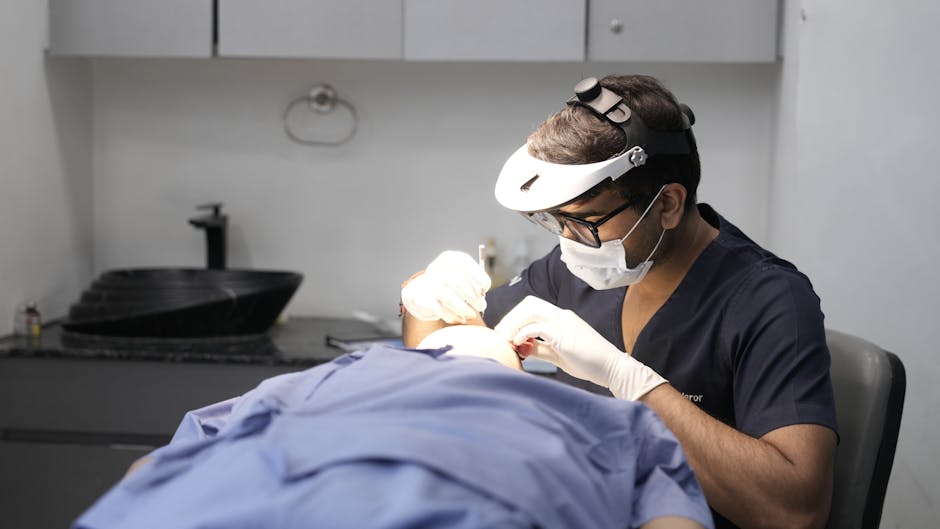Lower Bluff Surgery: Your Comprehensive Guide to Procedures, Recovery, and Finding the Right Surgeon
Considering surgery? Understanding the process, from initial consultation to post-operative care, can significantly reduce anxiety and improve your overall experience. This comprehensive guide focuses on Lower Bluff Surgery, exploring various procedures, recovery expectations, and crucial factors to consider when choosing a surgeon. Whether you’re researching a specific procedure or seeking general information, this resource aims to empower you with knowledge and confidence.
Understanding Lower Bluff Surgery: A Broad Overview
The term “Lower Bluff Surgery” isn’t a specific medical term; rather, it likely refers to surgical procedures performed in the lower abdominal region. This area encompasses several vital organs and structures, making it crucial to understand the specific procedure before committing. This could include, but is not limited to:
- Hernia Repair: Inguinal, femoral, and ventral hernias often require surgical intervention. Different techniques, such as laparoscopic or open surgery, are available.
- Appendicitis Surgery: Appendectomy, the removal of the appendix, is a common procedure performed when the appendix becomes inflamed or infected.
- Colon and Rectal Surgeries: These procedures address conditions like colon cancer, diverticulitis, hemorrhoids, and other colorectal issues.
- Gynecological Surgeries: Depending on the specific needs, this category can encompass a wide array of procedures, including hysterectomies, ovarian cyst removal, and others.
- Urological Surgeries: Procedures related to the urinary tract and reproductive organs in males can fall under this category.
It’s important to note that this list isn’t exhaustive. The exact nature of “Lower Bluff Surgery” will depend entirely on the specific medical condition requiring surgical intervention. Therefore, precise information can only be provided after a thorough consultation with a qualified surgeon.
Common Procedures Performed in the Lower Abdominal Region
Laparoscopic Surgery:
Minimally invasive laparoscopic surgery uses small incisions and specialized instruments to perform procedures. This technique often leads to less pain, reduced scarring, and faster recovery times compared to open surgery.
Open Surgery:
Open surgery involves a larger incision to access the affected area. While it may lead to more noticeable scarring and a longer recovery period, it’s sometimes necessary for complex procedures or emergencies.
Robotic Surgery:
Robotic-assisted surgery uses a computer-controlled system to enhance the surgeon’s precision and dexterity during minimally invasive procedures.
Recovery from Lower Abdominal Surgery: What to Expect
Post-operative recovery varies greatly depending on the specific procedure performed, the patient’s overall health, and other factors. However, some common aspects include:
- Pain Management: Pain medication is typically prescribed to manage post-operative discomfort.
- Wound Care: Proper wound care is crucial to prevent infection and promote healing.
- Dietary Restrictions: A gradual return to a normal diet is usually recommended, often starting with clear liquids.
- Physical Therapy: Physical therapy may be necessary to regain strength and mobility.
- Follow-up Appointments: Regular follow-up appointments with the surgeon are essential to monitor healing and address any complications.
The recovery timeline can range from a few weeks to several months, depending on the complexity of the surgery. Closely following the surgeon’s instructions is vital for optimal recovery.
Choosing the Right Surgeon for Lower Bluff Surgery
Selecting a qualified and experienced surgeon is paramount. Consider these factors:
- Board Certification: Verify the surgeon’s board certification in a relevant surgical specialty.
- Experience and Expertise: Look for surgeons with extensive experience in the specific procedure you require.
- Hospital Affiliation: Choose a surgeon affiliated with a reputable hospital with a strong surgical program.
- Patient Reviews and Testimonials: Read online reviews and testimonials to gain insights into other patients’ experiences.
- Consultation: Schedule a consultation to discuss your condition, the proposed procedure, and any questions or concerns you may have.
The Cost of Lower Bluff Surgery: A Realistic Perspective
The cost of surgery can vary greatly depending on the procedure, the surgeon’s fees, the hospital or surgical center, and other factors. It’s advisable to discuss the cost with the surgeon’s office beforehand to understand the potential expenses and explore financing options if necessary.

Potential Risks and Complications
Like any surgical procedure, Lower Bluff Surgery carries potential risks and complications. These can include infection, bleeding, adverse reactions to anesthesia, and other complications. Discussing potential risks with your surgeon is crucial to making an informed decision.
Frequently Asked Questions (FAQs)
Q: What is the recovery time for Lower Bluff Surgery? A: Recovery time varies greatly depending on the specific procedure. Your surgeon will provide a more precise estimate during your consultation.

Q: How much does Lower Bluff Surgery cost? A: The cost varies considerably; it’s best to discuss costs directly with your surgeon’s office.
Q: What are the risks associated with Lower Bluff Surgery? A: Like any surgery, there are potential risks, including infection, bleeding, and complications from anesthesia. Your surgeon will discuss these in detail.

Q: How do I find a qualified surgeon for Lower Bluff Surgery? A: Seek referrals, check board certifications, research hospital affiliations, and read patient reviews.
This article provides general information. Always consult with a qualified medical professional for diagnosis and treatment of any medical condition.

